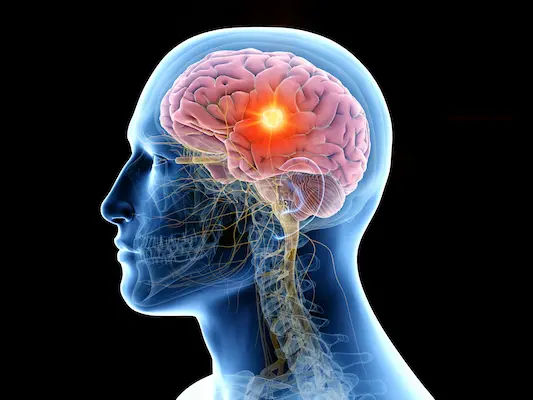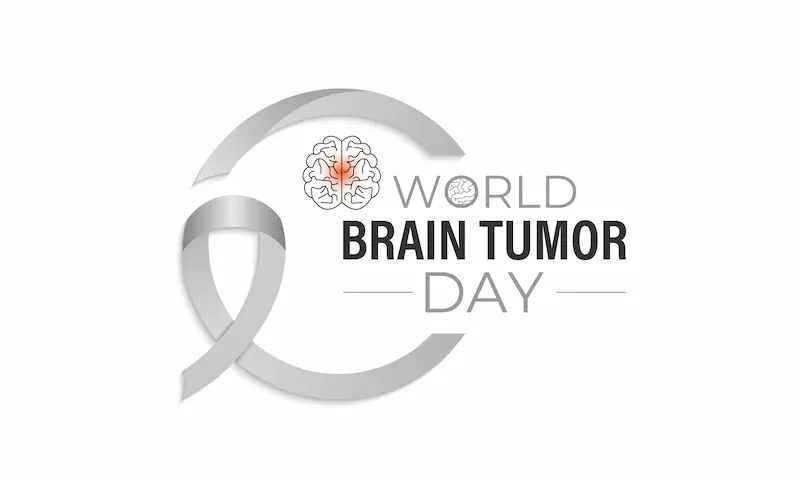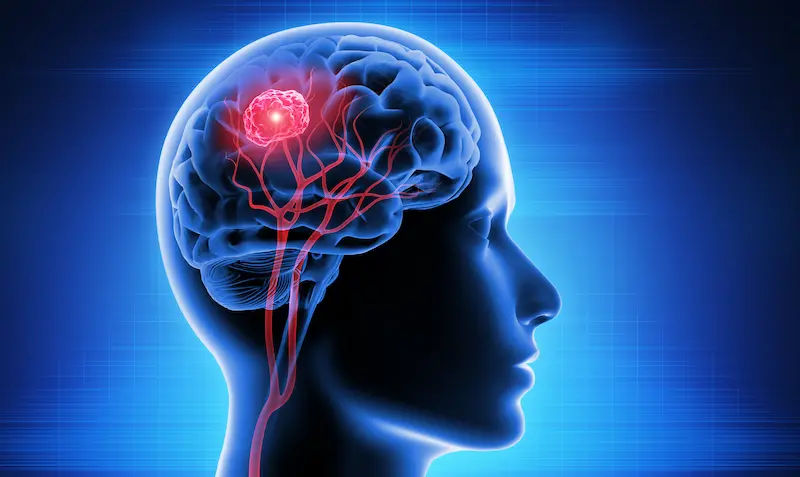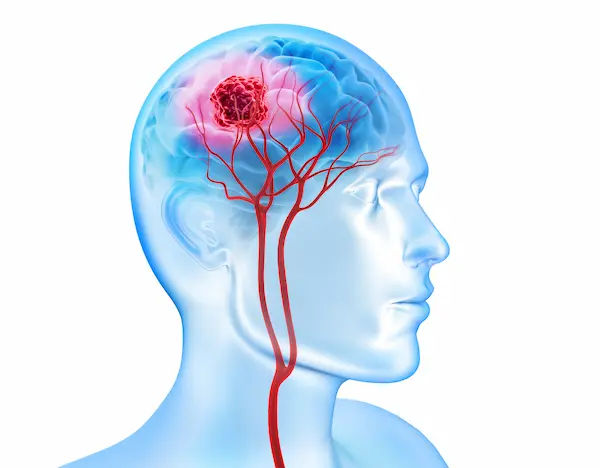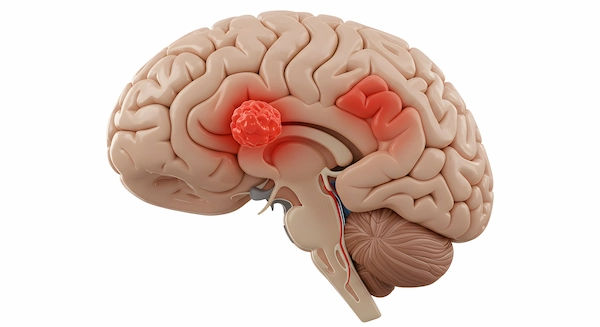Signs Of Brain Tumors And Types
Discover the common signs of brain tumors, including early warning symptoms and diagnosis tips. Learn about different types of brain tumors, their classifications, and how they affect brain function and overall health.

Written by Dr. Siri Nallapu
Reviewed by Dr. D Bhanu Prakash MBBS, AFIH, Advanced certificate in critical care medicine, Fellowship in critical care medicine
Last updated on 13th Jan, 2026

The human brain is the command center for everything we do, think, and feel. So, when something goes wrong, like the development of a brain tumor, the symptoms can be wide-ranging and deeply concerning. Understanding the signs of a brain tumor is not about fostering fear, but about promoting awareness and empowering you to take charge of your health. This guide provides a comprehensive overview of the potential warning signs, the different types of brain tumors, and the critical steps to take if you have concerns. Remember, most headaches are not caused by tumors, but knowing the specific red flags can make all the difference.
General Signs and Symptoms of a Brain Tumor
The symptoms of a brain tumor are incredibly varied and depend largely on the tumor’s size, location, and rate of growth. They can be broadly categorized into two groups: general symptoms caused by pressure inside the skull and specific symptoms caused by the tumor pressing on or invading specific brain areas.
The Most Common Red Flags
Some of the most frequent early warning signs of a brain tumor include:
- Headaches: These are often a key concern. While common, tumor-related headaches may be persistent, worse in the morning or when lying down, and might intensify with coughing, sneezing, or exercise. They may not respond to typical over-the-counter pain medication.
- Seizures: A new onset of seizures in an adult is a major red flag and requires immediate medical evaluation. A tumor can irritate the brain, causing uncontrolled movements or sensations.
- Nausea and Vomiting: Unexplained nausea or vomiting, especially if it's persistent and occurs in the morning, can be related to increased intracranial pressure.
- Cognitive or Personality Changes: You might experience confusion, memory problems, difficulty concentrating, or noticeable shifts in behavior, mood, or personality.
- Persistent Fatigue: An overwhelming and unshakable sense of tiredness and lethargy that doesn't improve with rest.
Symptoms Related to Tumor Location
Where the tumor is located directly affects what functions are disrupted:
- Frontal Lobe: Changes in personality, judgment, and reasoning; loss of smell; weakness on one side of the body.
- Temporal Lobe: Problems with speech, memory, and hearing; experiencing unusual smells or déjà vu.
- Parietal Lobe: Difficulties with reading, writing, and spatial awareness; numbness on one side of the body.
- Occipital Lobe: Vision problems, including loss of vision in one or both eyes or seeing flashing lights.
- Cerebellum: Loss of coordination, balance issues, and dizziness.
- Brainstem: Slurred speech, difficulty swallowing, double vision, and facial weakness or numbness.
When Should You See a Doctor?
It is crucial to understand that the symptoms listed above are common to many other, less serious medical conditions. However, you should consult a doctor if you experience:
- A new, persistent headache that is unlike any you've had before.
- The sudden onset of seizures.
- Any of the above symptoms that are progressive and worsening over time.
- Unexplained vomiting accompanied by a headache.
If symptoms persist beyond two weeks or suddenly worsen, consult a doctor online with Apollo24|7 for further evaluation. Early consultation can provide peace of mind or ensure prompt investigation if needed.
Consult Top Specialists
What Are the Different Types of Brain Tumors?
Not all brain tumors are the same. They are classified based on where they originate and whether they are cancerous (malignant) or non-cancerous (benign).
Primary vs. Metastatic Brain Tumors
- Primary Brain Tumors: These begin in the brain itself. They can be benign or malignant. Benign tumors grow slowly and are less likely to spread, but they can still be serious if they press on critical brain structures.
- Metastatic (Secondary) Brain Tumors: These are more common. They are cancerous tumors that have spread to the brain from another part of the body, such as the lung, breast, kidney, or skin (melanoma). Metastatic brain cancer is always malignant.
Common Types of Primary Brain Tumors
There are over 120 types of primary brain tumors. Some of the most common include:
- Gliomas (e.g., Glioblastoma, Astrocytoma): These tumors originate in the glial cells that support nerve cells. They are the most common type of malignant primary brain tumor in adults. Glioblastoma is a highly aggressive (grade IV) form of glioma.
- Meningiomas: These are the most common primary brain tumors overall. They arise from the meninges (the membranes surrounding the brain and spinal cord). Most are benign and slow-growing, but they can cause symptoms by compressing the brain.
- Pituitary Adenomas: These benign tumors develop in the pituitary gland at the base of the brain. They can cause symptoms of a pituitary tumor by disrupting hormone levels, leading to issues like infertility, weight changes, and Cushing's syndrome, or by pressing on the optic nerves, affecting vision.
- Acoustic Neuromas (Vestibular Schwannomas): These are benign tumors that develop on the nerve leading from the inner ear to the brain. Acoustic neuroma symptoms typically include hearing loss in one ear, ringing in the ears (tinnitus), and balance problems.
Brain Tumors in Children
Paediatric brain tumors often differ from those in adults. Common types include medulloblastomas, ependymomas, and craniopharyngiomas. Symptoms can include recurrent headaches, nausea, balance problems, and increased head size in infants.
What Causes Brain Tumors?
The exact causes of glioblastoma and other primary brain tumors remain largely unknown. However, certain risk factors have been identified:
- Exposure to Ionizing Radiation: Previous radiation treatment to the head.
- Family History: A small percentage of brain tumors are linked to genetic syndromes, such as neurofibromatosis.
- Age: Risk increases with age, though certain types are more common in children.
- Compromised Immune System: Some cases are more common in people with weakened immune systems.
How Are Brain Tumors Diagnosed?
If a brain tumor is suspected, a neurologist will start with a thorough neurological exam. The cornerstone of diagnosis is imaging:
- MRI (Magnetic Resonance Imaging): Provides detailed images of the brain and is the preferred method.
- CT (Computed Tomography) Scan: Often used in emergency settings.
- A biopsy (surgical removal of a small tissue sample) is usually required to determine the exact type and grade of the tumor.
Treatment Options for Brain Cancer
Treatment is highly personalized and depends on the tumor’s type, size, location, and grade, as well as the patient's overall health. A multidisciplinary team approach is essential. Options include:
- Surgery: The primary goal is to remove as much of the tumor as possible without damaging neurological function.
- Radiation Therapy: Uses high-energy beams to target and kill tumor cells.
- Chemotherapy: Uses drugs to destroy cancer cells.
- Targeted Therapy & Immunotherapy: Newer treatments that focus on specific abnormalities within cancer cells or boost the body's immune system to fight cancer.
Living with a Brain Tumor: Prognosis and Support
A brain tumor diagnosis is life-altering. Prognosis varies tremendously, from a complete cure for a benign, removable tumor to a more challenging journey with a malignant one. Support from healthcare teams, counselors, and support groups is vital for managing the physical, emotional, and practical challenges.
Conclusion
Understanding the signs and types of brain tumors is a powerful form of health literacy. While the topic is undoubtedly serious, this knowledge is not meant to incite anxiety but to encourage proactive healthcare. Listening to your body and recognizing when symptoms are unusual or persistent is the first and most important step. If you have any concerns, the best course of action is always to seek professional medical advice. Timely evaluation can lead to the best possible outcomes, whether it rules out a serious condition or catches one at its earliest, most treatable stage. If your condition does not improve after trying conservative methods, book a physical visit to a doctor with Apollo24|7 for a comprehensive neurological assessment.
Consult Top Specialists
Consult Top Specialists
Dr Venkata Sumanth Chava
Neurologist
4 Years • "• DM neurology at Jawaharlal Nehru medical college, KLE academy of higher education and research, Belagavi. • MD internal medicine at JSS medical college, JSS academy of higher education and research, Mysuru. • MBBS at Prathima institute of medical sciences, Dr NTR university of health sciences, Karimnagar."
Hyderabad
Apollo Hospitals Financial District, Hyderabad

Dr. Ranjith G
Neurologist
10 Years • DM (Neurology) FSIN (Fellowship in stroke and intervention neurology) MD (Internal Medicine)
Hyderabad
Apollo Hospitals Financial District, Hyderabad

Dr. Devashish Vyas
Interventional Neurologists
8 Years • MD (Medicine), DNB (Neurology), FNVI
Ahmedabad
Apollo Hospitals Gandhinagar, Ahmedabad

Dr. Avinash Gupta
Neurologist
12 Years • MBBS, DNB - Neurology
Bilaspur
Apollo Hospitals Seepat Road, Bilaspur
(150+ Patients)
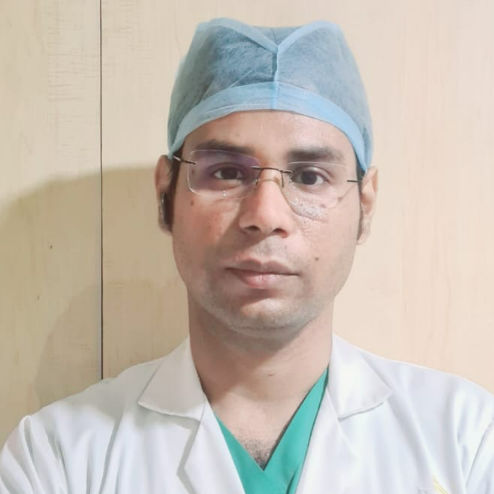
Dr Debnath Dwaipayan
Neurosurgeon
9 Years • MBBS, MS(Gen. Surgery), DrNB (Neurosurgery)
Delhi
Apollo Hospitals Indraprastha, Delhi
Consult Top Specialists
Dr Venkata Sumanth Chava
Neurologist
4 Years • "• DM neurology at Jawaharlal Nehru medical college, KLE academy of higher education and research, Belagavi. • MD internal medicine at JSS medical college, JSS academy of higher education and research, Mysuru. • MBBS at Prathima institute of medical sciences, Dr NTR university of health sciences, Karimnagar."
Hyderabad
Apollo Hospitals Financial District, Hyderabad

Dr. Ranjith G
Neurologist
10 Years • DM (Neurology) FSIN (Fellowship in stroke and intervention neurology) MD (Internal Medicine)
Hyderabad
Apollo Hospitals Financial District, Hyderabad

Dr. Devashish Vyas
Interventional Neurologists
8 Years • MD (Medicine), DNB (Neurology), FNVI
Ahmedabad
Apollo Hospitals Gandhinagar, Ahmedabad

Dr. Avinash Gupta
Neurologist
12 Years • MBBS, DNB - Neurology
Bilaspur
Apollo Hospitals Seepat Road, Bilaspur
(150+ Patients)

Dr Debnath Dwaipayan
Neurosurgeon
9 Years • MBBS, MS(Gen. Surgery), DrNB (Neurosurgery)
Delhi
Apollo Hospitals Indraprastha, Delhi
More articles from Brain Tumor
Frequently Asked Questions
What does a brain tumor headache feel like?
A brain tumor headache is often described as a persistent, dull ache that may be worse in the morning or when lying down. It might be accompanied by nausea or vomiting and can intensify with physical exertion. However, headache patterns vary greatly.
Can a benign brain tumor be serious?
Yes. Even a non-cancerous benign vs malignant brain tumor can be serious if it grows and presses on critical areas of the brain, such as the brainstem or optic nerves, causing neurological deficits. Treatment is often necessary.
Are there any early signs of a brain tumor I might miss?
Subtle early signs can include slight changes in personality or mood, minor memory lapses, a gradual loss of smell, or a slight tremor. Because these are vague, they are often attributed to stress or aging, which is why persistent symptoms need checking.
How common are metastatic brain tumors?
Metastatic brain tumors are actually more common than primary brain tumors. They occur in about 10-30% of adults with cancer elsewhere in the body, as cancer cells travel through the bloodstream to the brain.
What is the survival rate for a grade 4 glioma like glioblastoma?
Glioblastoma survival rate statistics are general estimates. With aggressive treatment, the median survival is often cited as 12-18 months, though this varies significantly based on age, overall health, and specific tumor genetics. New treatments are continually improving outcomes.
